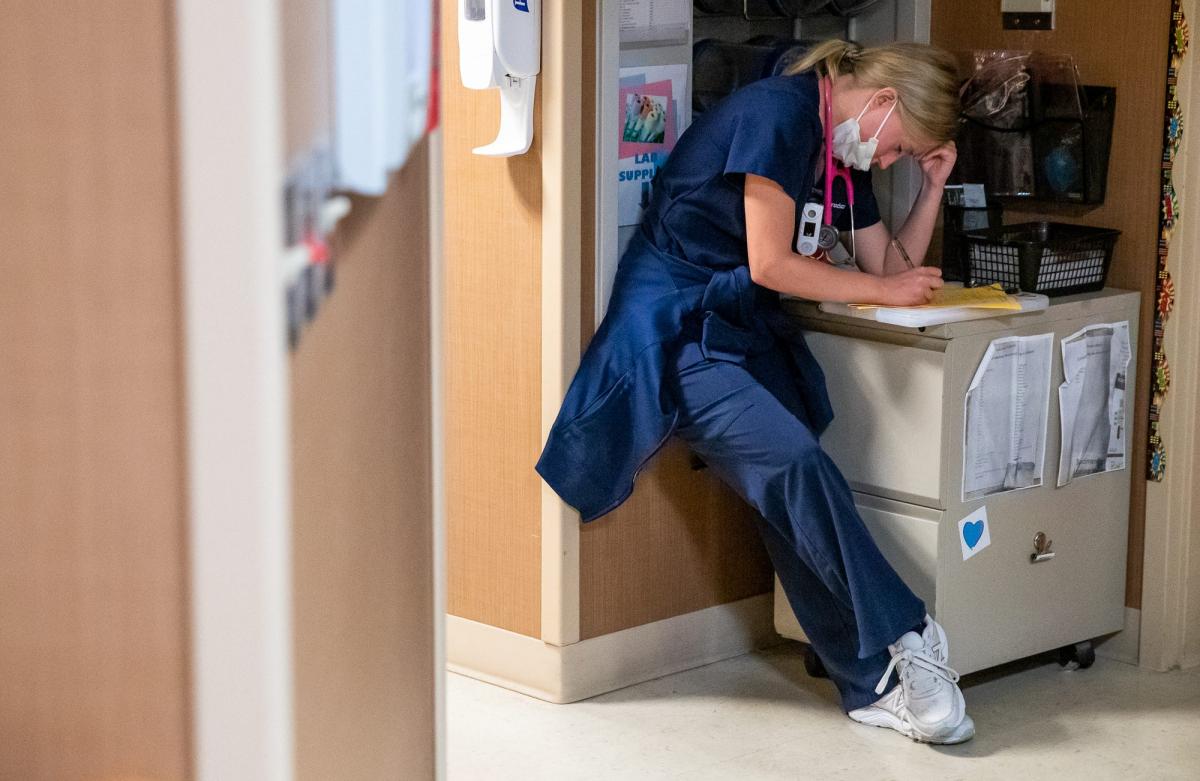Amid our current shortage of consumer products, caused primarily by delays in producing and delivering them, another more concerning phenomenon has arisen: the dearth of nurses. It is a problem that outweighs whether Christmas gifts will arrive on time, if at all.
As I drive by retail outlets, I constantly see hiring signs. You do not see the same signs in front of hospitals. But you know the problem is severe.
In fact, the situation could be characterized as a life or death one; patients seeking care are facing a logjam. Lack of nurses means that individual care suffers. People may wait days in the Emergency Room (ER) before being admitted to a hospital room. The ER or the Intensive Care Unit becomes backed up.
A recent email from Luminis Health Anne Arundel Medical Center Foundation reported that hospitals are employing traveling nurses at nearly three times the salary of current nurses. The hospital has no choice.
As is understandable, the current/permanent nurses feel resentful, out paid by the equally competent traveling crew. The impact on morale is obvious, augmented by the Covid scourge and potential burnout.
During numerous hospitalizations in my life, I have learned that nurses and medical technicians are on the front line of post-operative treatment. In many cases, they are providing care to the patient and compassion to the family that doctors either are too busy or personally incapable of doing.
At the risk of insulting physicians, only in recent times have I seen them adopt a more humane bedside manner that benefits recovery. I have long applauded their technical skills, precision and ability to withstand stress. The talent level has always been superior.
Nurses offer an invaluable service, handling daily needs and explaining medical issues. Of course, they are careful to respect the medical expertise embodied in those wearing the white coats. They know not to cross the ethical and appropriate lines of authority and intervention. Still, they fill in the voids left by doctors.
So, what do we ordinary citizens and hospital consumers do as a positive response to the dire nursing shortage?
On the most basic level, we might be more grateful of nursing care and freely express our thanks. Most everyone appreciates a bit of praise every so often. It may be more necessary now than ever.
On another level, we might financially support training and retention programs for nurses. I well realize that all of us are coping with immediate needs and inflation. Just a thought when considering philanthropy. Loss of nurses to other professions is injurious to our health.
Also, we might encourage more people to seek nursing careers. The shortage affects all of us dealing with our medical needs.
Our times are difficult. Nationwide, people are quitting their jobs for a slew of reasons, including burnout, inadequate pay and lack of appreciation. Most of our economic sectors are working feverishly to hire good employees. The employment environment is suffering; our country needs 4.3 million workers.
Though health care is just one of many economic realms, it certainly has a universal impact, regardless of where you live and your income level. I hope that our nursing shortage can right itself.
Immediate care and attention are necessary for physical and mental health when sitting in a hospital. Lengthy wait times due to short-staffed, overworked staff cause more stress and anguish.
Columnist Howard Freedlander retired in 2011 as Deputy State Treasurer of the State of Maryland. Previously, he was the executive officer of the Maryland National Guard. He also served as community editor for Chesapeake Publishing, lastly at the Queen Anne’s Record-Observer. In retirement, Howard serves on the boards of several non-profits on the Eastern Shore, Annapolis and Philadelphia.



Write a Letter to the Editor on this Article
We encourage readers to offer their point of view on this article by submitting the following form. Editing is sometimes necessary and is done at the discretion of the editorial staff.